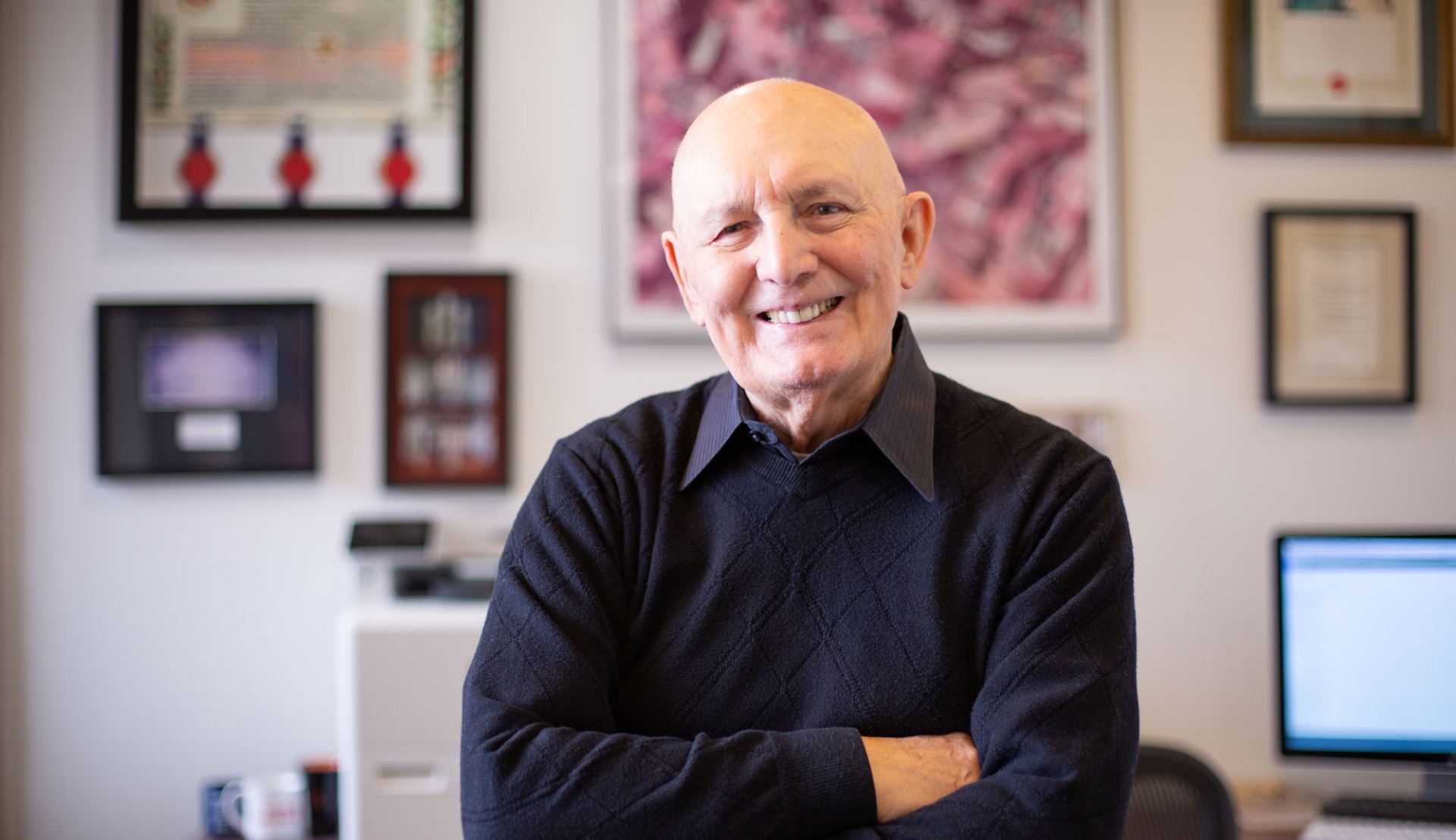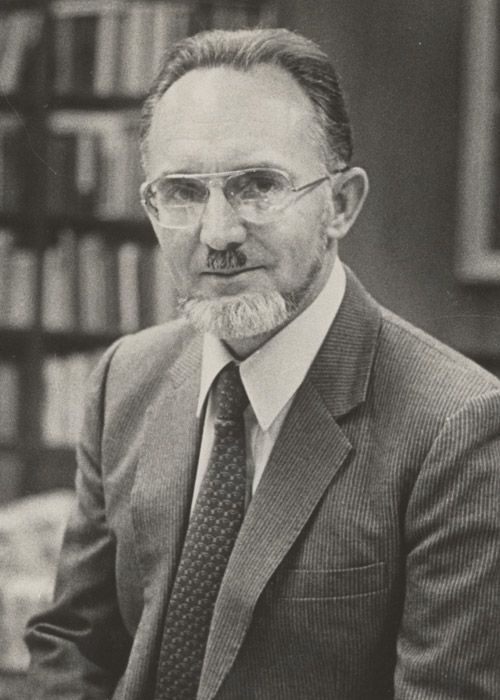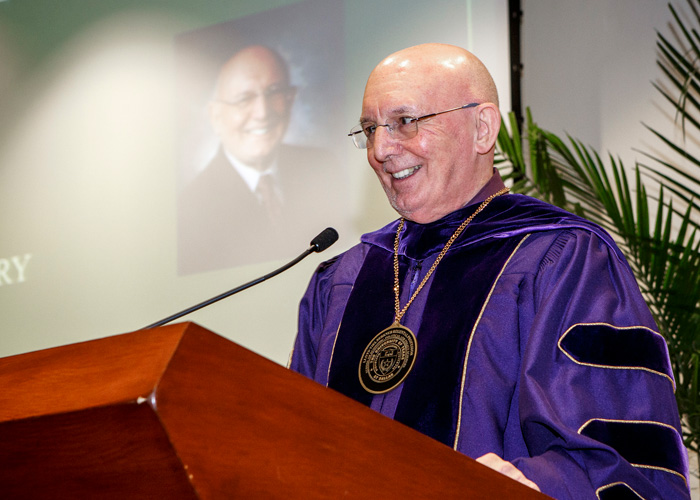
Dr. Brian Berry
In a career that has spanned more than 60 years, Dr. Brian Berry has helped change the fields of geography and urban studies by focusing on quantitative analysis and geospatial information sciences (GIS).
At the same time, through his influential research and teaching, he also has built a legacy of excellence and leadership at The University of Texas at Dallas.
In 1986 Berry joined the faculty of the School of Social Sciences – now known as the School of Economic, Political and Policy Sciences (EPPS) – after a lengthy courtship by Dr. Alexander Clark, vice president for academic affairs.
Clark’s mission to lure Berry to the upstart university began in the 1970s. The two had become acquainted while Clark worked with the National Research Council. Berry’s early work helped spark the scientific revolution that occurred in geography and urban research in the early 1960s, making him the world’s most frequently cited geographer for 25 years.

“In the mid-’70s, Alexander followed [UT Dallas co-founder] Cecil Green’s example and traveled around the country looking for new PhDs to staff this new university,” Berry recalled. “He arrived at my doorstep at The University of Chicago. He wanted to talk to some of my new PhDs — he hired two of them — and then he said, ‘Well, Brian, you’ve decided to leave Chicago after almost 20 years to go to Harvard. I don’t know why you’d want to go to Harvard. Why don’t you come down instead and help me build a new university?”
While Berry opted for Harvard University, then moved to Carnegie Mellon University, Clark wasn’t deterred, and eventually Berry relented and came to UT Dallas, although he recalled that his first reaction to seeing the handful of Brutalist concrete buildings on the campus was, “What the hell have I gotten myself into?”
At the time, UT Dallas had more graduate students than upper-level undergrads. Freshmen and sophomores would not arrive on campus until 1990. The faculty consisted of about 100 educators. EPPS only had one PhD degree program — public policy. But one thing in favor for UT Dallas — which was only 17 years old at the time — was its youth.
During his 35 years with the University, Berry, who is the Lloyd Viel Berkner Regental Professor, has served as a valued mentor to both students and faculty. He also shifted his research focus to Kondratieff Waves, a theory regarding long economic cycles.
“No other geographer has had more of an impact on the field of geography and social science in general than Brian Berry,” said Dr. Jennifer Holmes, EPPS dean. “The significance of his scholarship is matched only by the intensity of his work ethic.”
Although Berry once steadfastly opposed serving as dean, he held the post from 2005 to 2010 and helped rebrand the school as EPPS and introduced new PhD programs, such as economics, political science and GIS, which was the first doctoral program of its kind in the U.S.
“I’m very proud of helping create new programs that are among the national elite,” he said, “but I’m also proud of having our PhDs go out and get significant jobs in major universities.”

Berry’s accolades include winning the Vautrin Lud Prize, considered the “Nobel Prize for Geography.” He also was the youngest social scientist to be elected to the National Academy of Sciences. In addition, he received the Victoria Medal, the Royal Geographical Society’s highest honor, and was elected a fellow of the British Academy. Most recently, he received the Kondratieff Medal from the Russian Academy of Sciences, the 2020 Stanley Brunn Award for Creativity in Geography from the American Association of Geographers, and the 2021 University Consortium for Geographic Information Sciences Research Award.
While his list of personal milestones is long, he takes just as much satisfaction in his teaching achievements, including mentoring more than 150 doctoral students during his career.
Sunny Uzuh MA’83, PhD’88 was among the first of them at UT Dallas, and he exemplifies the tremendous impact Berry has had on the University’s mission of education.
A native of Nigeria, Uzuh came to the U.S. in 1977 to study. In 1986 Uzuh was mulling whether to pursue a PhD to complement his master’s in political economy when the same name kept appearing in his research.
“Dr. Brian Berry, the famous economic geographer and urban planner — everywhere I read, this man was popping up,” Uzuh recalled. “Around this time is when there was news that he was coming to Dallas. I could not believe it.”
Uzuh earned a doctorate in political economy, with Berry as his advisor. Today, Uzuh and his wife are the founders of the Rosy Health Care Foundation.
“Dr. Berry took me in immediately and encouraged me,” Uzuh said. “It was two years of intensive work, but he treated me as a colleague. It was one of the best decisions I made in my life.”